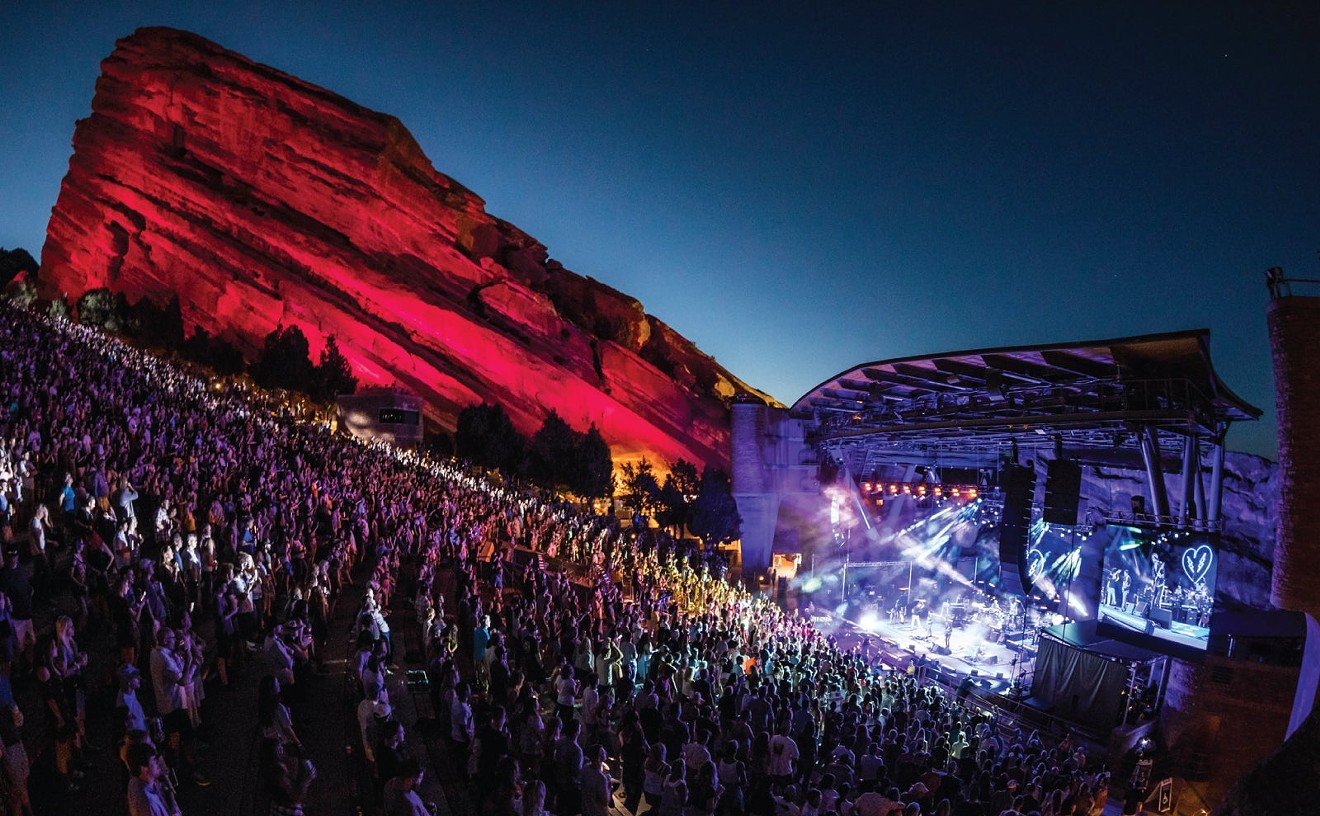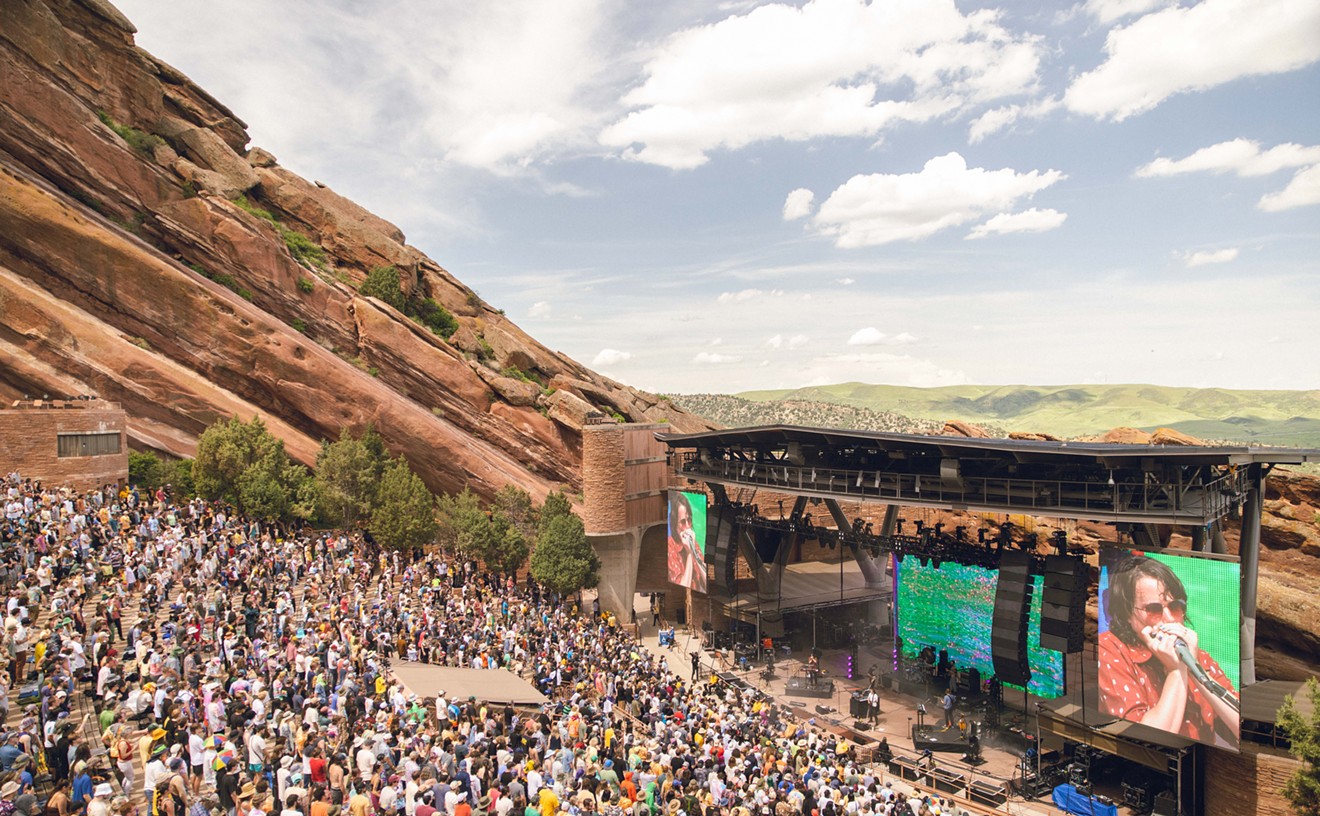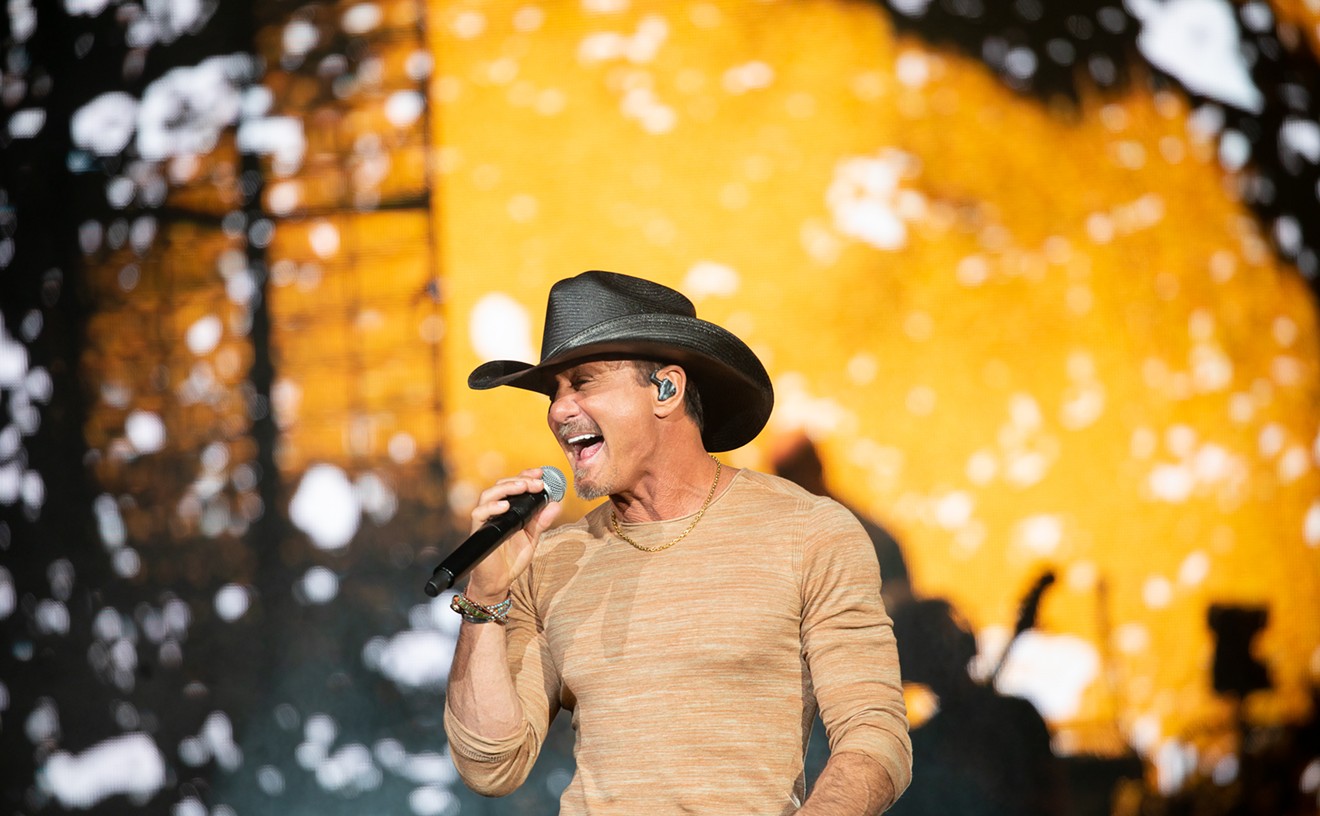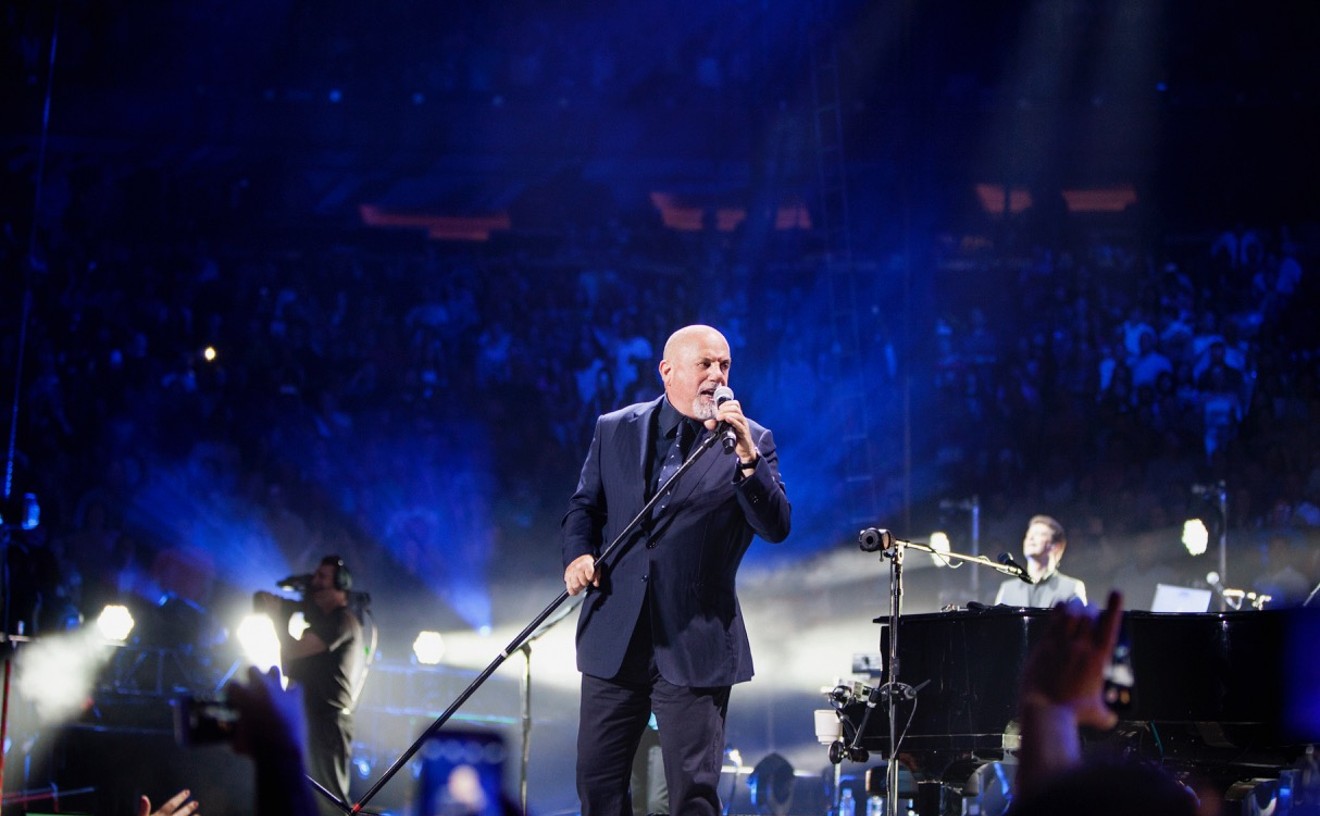It's one thing to be a political musician, to point out the inherent wrongs of our social and political constructs from afar. Admirable as that is, it takes a truly special person to take a personal stake in perceived injustice and do something that goes beyond music.
A couple days ago, Yasiin Bey (aka Mos Def) put his body, mind and dignity on the line when he volunteered with the human rights group Reprieve to be force-fed, as many Guantanamo Bay detainees are, on camera, to raise awareness.
Visibly shaken, Bey couldn't go all the way through with it, but even in failing, he succeeded in making his point. Here are ten other musicians who went above and beyond the music to make a statement.
See also: - Top five failed attempts by musicians to run for political office - Peaches on taking action on behalf of Pussy Riot - Review: Brother Ali at Cervantes', 2/2/13
10. Wyclef Returns Home Wyclef Jean has long been actively involved in supporting Haiti. It is, after all, where he was born. But he took that commitment to a new level after the tragic earthquake that Haiti endured in 2010 when he decided that he would run for president of his homeland. Despite much speculation by Haitians and Americans alike that Jean wasn't suited for the job, he seemed sincere. When his bid was rejected by Haiti's Provisional Electoral Council, he withdrew gracefully.
9. John and Yoko Stay In After John Lennon and Yoko Ono got married, following in Ono's tradition of performance art, the two spent their honeymoon in an Amsterdam hotel in bed, but not doing what you might expect. The two invited the press into their room for twelve hours each day and hosted a bed-in for peace. Signs above their bed read "Hair Peace" and "Bed Peace." Said Ono, "It's part of our policy not to be taken seriously. Our opposition, whoever they may be, in all manifest forms, don't know how to handle humor. And we are humorous." Apparently, Lennon and Ono were satisfied with their initial bed-in, because they did another one just a couple months later in Montreal.
8. Brother Ali Occupies Homes Brother Ali is kind of like a brother to all, which is why he volunteered to help impede officials in evicting the Cruz family, a family that he didn't even know, earlier this year. Occupy Homes MN is a Minnesota initiative designed to defend against wrongful evictions and foreclosures. Ali has long been a unique part of rap culture, and now, in a genre known for its problems with the law, he has set himself apart as one of the few willing to get arrested for the right reasons.
7. Jello Biafra Goes Green Jello Biafra, never one to make the "safe" choice, after a failed bid for mayor of San Francisco, decided to put in his bid for the Green Party candidacy for President of the United States with famed lifetime prison inmate Mumia Abu-Jamal, whose trial's impartiality has been questioned by numerous human-rights activist organizations. Biafra won only ten of the party's 319 delegate votes, which was good enough for second place to Ralph Nader.
6. Dizzy for President Dizzy Gillespie was known as a practical joker, and that's probably how his 1964 bid for president began. Keep in mind that 1964 was the year that the U.S. Legislature outlawed most major forms of systemic discrimination against racial, ethnic, national and religious minorities, but racism was still overt and at the surface of American culture. Gillespie made memorable political promises that, unlike most politicians, he likely would have kept, including U.S. withdrawal from Vietnam, putting African-American astronauts into space, renaming the White House the "Blues House" and making Miles Davis the head of the CIA. He once even modified his song "Salty Peanuts" (above) to be his campaign song.
5. Raging Against the Machine Did you expect Rage Against the Machine to not rage against the machine? At Lollapalooza '93, instead of playing their normal music -- which is already pretty damn counterculture -- all four of the band's members stood on stage balls-out naked with tape over their mouths and each with a letter spelling "PMRC" (Parents Music Resource Center), to protest censorship in music. The PMRC was founded by infamous lip-sealer Tipper Gore and was the driving force behind the Parental Advisory "Tipper" Sticker.
4. Joan Baez Protests Vietnam Joan Baez has a long history of activism, and like many others, she voiced her opposition to the Vietnam War in her music. But unlike many others, she also sacrificed her freedom in protest. In 1967, with forty others, as a part of Stop the Draft Week, Baez was arrested for blocking the entrance to a military induction center in Oakland. "I went to jail for eleven days for disturbing the peace," she said. "I was trying to disturb the war." She also spent a night in a South Central Los Angeles tree to prevent its demolition by an urban farm. She's just that kind of woman.
3. Free Tibet Though this list is meant to recognize musicians who go beyond music to make an impact on the cultural landscape, in some places, just making music is enough to cause a major disturbance. Around a year ago, two Tibetan musicians, 22-year-old Pema Trinley and 32-year-old Chakdor, produced an album called The Pain of an Unhealed Wound, which praised the Dalai Lama as well as the Tibetans who have engaged in self-sacrificial protest of Chinese occupation. As a result, they were each given a two-year prison sentence, though their whereabouts are currently unknown.
2. Pussy Riots (Kind Of) To protest the re-election of Vladimir Putin, feminist punk-rockers Pussy Riot donned colorful clothes and caused somewhat of a disturbance in the nearly empty Cathedral of Christ the Savior, a Russian Orthodox church. In America, this might be just an ordinary YouTube video, but Pussy Riot was soon imprisoned for -- that's right -- hooliganism, a law more applicable to the lawns of old people than a just government. Sticking to their principles, Pussy Riot defended their protest as political speech rather than blasphemy, and would "not beg and humiliate themselves before such a bastard" as Putin. The three punkers were tried were convicted almost a year ago and are still serving a two-year sentence. Free Pussy Riot!
1. Fela Kuti Deals With the Dead In 1977, Fela Kuti released Zombie, which used the zombie metaphor to describe the Nigerian military. The military responded with a viscious attack on the Kalakuta Republic, a commune that Fela Kuti founded, during which he was brutally beaten. As a show of defiance, Kuti brought his own mother's coffin to the doorstep of General Olusegun Obasanjo, whom he deemed responsible. Kuti later went on to found his own political party, the Movement of the People. When Kuti was jailed in 1984, Amnesty International declared him a prisoner of conscience, implying that he had been imprisoned for his political views and actions. He was imprisoned for twenty months before being released.
Follow @Westword_Music










